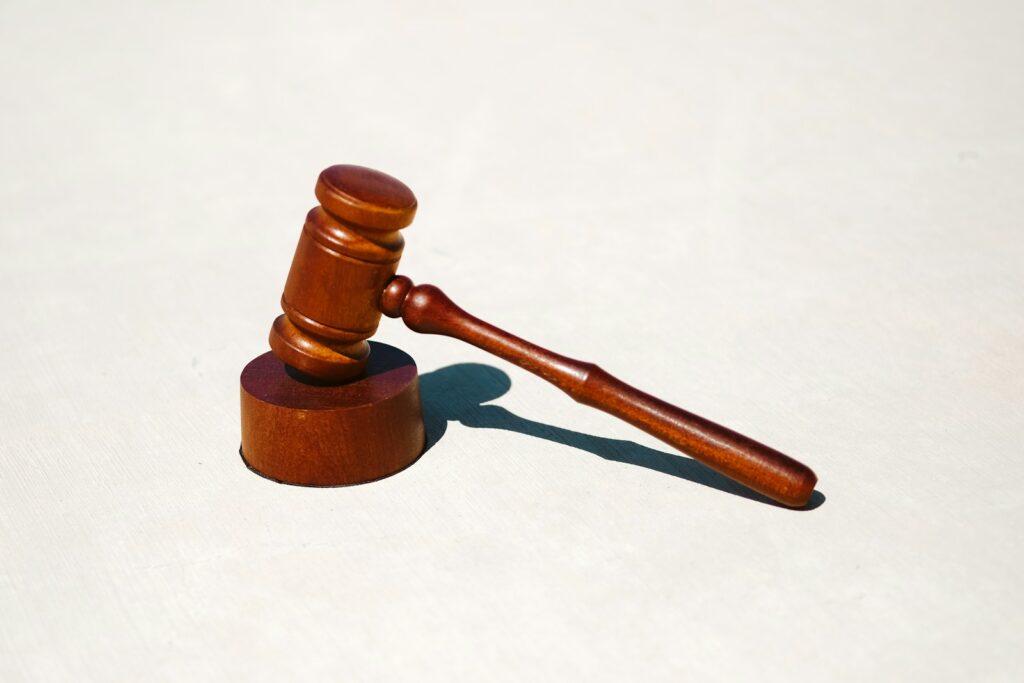Understanding the Deprivation of Liberty Safeguards (DoLS)
Definition and Purpose
Deprivation of Liberty Safeguards (DoLS) are part of the Mental Capacity Act 2005. They aim to ensure that people in care homes and hospitals are looked after in a way that does not inappropriately restrict their freedom. DoLS set out a process for assessing whether a deprivation of liberty is necessary, and if so, how it should be carried out.
It’s vital when working in care, to understand the factors around DoLS to be able to identify and take appropriate action when it is needed. This guide is aimed at people who work in the health and social care industry or with children in England and Wales.
Ensuring appropriate care and support
DoLS are important safeguards that ensure deprivation of liberty is lawful and in the person’s best interests. Continuous supervision is often required to ensure the safety and well-being of individuals under DoLS. The relevant person’s representative plays a crucial role in maintaining the person’s best interests by providing support and representation.
The safeguards are in place to ensure that care arrangements and limits to a person’s freedom are assessed, applied for a set period of time, and reviewed.
This guide will go through the following sections. You can scan through the guide or click on the individual section below:
- Key Principles of DoLS
- When DoLS Apply
- The DoLS Process
- Roles and Responsibilities
- Challenging DoLS Decisions
- Legal and Ethical Considerations
- Extra learning and links
First, watch this short introduction video on DoLS.
1. Key principles of safeguarding
Take a look and understand the principles of DoLS.
This principle emphasises that any restrictions placed on an individual should be the minimum necessary to address the harm or risk identified. Care providers must consider all available options and choose the one that imposes the least limitations on the person’s rights and freedoms while still achieving the desired protective effect.
For example, a person with dementia might wander and get lost, using a door alarm might be less restrictive than keeping the person in a locked unit. This principle ensures that people are not subjected to unnecessary or excessive restrictions in the name of safety.
Any deprivation of liberty must be in the person’s best interests. This means that the decision to restrict someone’s liberty should be made after careful consideration of various factors, including the person’s past and present wishes, their beliefs and values, and the views of their family or carers.
The best interests principle requires that the potential benefits of the deprivation outweigh the negative impact on the person’s rights and quality of life. It’s not enough for the restriction to be convenient for staff or the care setting; it must genuinely serve the individual’s overall wellbeing and welfare.
The deprivation of liberty must be necessary to prevent harm to the person. This principle requires that there is a clear and specific risk of harm that cannot be adequately addressed through less restrictive means.
The potential harm should be significant and not merely speculative. For instance, if a person with a learning disability is at risk of financial exploitation, restrictions on their ability to access large sums of money might be necessary. However, this principle would not justify blanket restrictions on all financial decisions. Care providers must be able to demonstrate why the deprivation is necessary and how it addresses the specific risk of harm.
The extent of the deprivation should be proportionate to the likelihood and seriousness of the potential harm. This means that more significant restrictions can only be justified by more serious risks. For example, constant one-to-one supervision might be proportionate for someone at high risk of suicide, but would likely be disproportionate for someone who occasionally forgets to take their medication.
This principle requires ongoing assessment, as the level of restriction should be adjusted if the level of risk changes. It ensures that people are not subjected to excessive restrictions “just in case” but that the level of intervention matches the level of risk.

2. When do DoLS apply?

DoLS may apply when:
The person is under 18 years old
The person lacks capacity to consent to their care/treatment arrangements
The person is under continuous supervision and control
The person is not free to leave their care setting
The care amounts to a deprivation of liberty
DoLS may apply in specific circumstances that meet certain criteria. Firstly, the person subject must be under 18 years of age, as different safeguards apply to children and young people compared to adults.
Secondly, the person must lack the mental capacity to consent to their care or treatment arrangements. This lack of capacity is typically due to conditions such as dementia, severe learning disabilities, or brain injuries.
Thirdly, the person must be under continuous supervision and control, which means their activities and movements are closely monitored and restricted by care staff.
Fourthly, the individual is not free to leave their care setting; this doesn’t necessarily mean they’re physically prevented from leaving, but that staff would stop them if they tried to leave permanently. Finally, the combination of these factors must amount to a deprivation of liberty, which is a legal concept defined by case law.
It’s important to note that all these conditions must be met for DoLS to apply, and the assessment of whether care arrangements amount to a deprivation of liberty can be complex and may require professional judgment.
3. What is the DoLS process
The process involves several steps:
Identifying a potential deprivation of liberty: This initial step involves care staff recognising situations where a person’s care arrangements might amount to a deprivation of liberty. It requires understanding the criteria for DoLS and being vigilant about restrictions placed on individuals. Staff should consider factors like the person’s freedom of movement, level of supervision, and ability to make choices about their care. If there’s any doubt, it’s better to proceed with the DoLS process.
Requesting a standard authorisation from the local authority: Once a potential deprivation of liberty is identified, the care home or hospital (known as the Managing Authority) must request a standard authorisation from the local authority (the Supervisory Body). This request should be made using official forms and include details about the person’s care arrangements, why deprivation of liberty is considered necessary, and any relevant medical information. The request initiates the formal DoLS process.
Assessments (including mental capacity, mental health, and best interests): Upon receiving a request, the local authority commissions a series of assessments. These include a mental capacity assessment to determine if the person can make decisions about their care, a mental health assessment to confirm if the person has a mental disorder, and a best interests assessment to evaluate if the deprivation is necessary and proportionate. These assessments are carried out by qualified professionals and form the basis for the authorisation decision.
Granting or refusing the authorisation: Based on the assessments, the local authority decides whether to grant or refuse the DoLS authorisation. If all assessments are positive, authorization is granted, allowing the deprivation of liberty to continue legally. If any assessment is negative, authorisation is refused, and the care provider must find alternative ways to provide care without depriving the person of liberty. The decision is communicated to all relevant parties.
Implementing the safeguards if authorised: If authorisation is granted, the care provider must implement the safeguards outlined in the DoLS. This includes appointing a Relevant Person’s Representative to support the person, ensuring the person has access to Independent Mental Capacity Advocates if needed, and adhering to any conditions specified in the authorisation. The care provider must also ensure that care plans reflect the authorised deprivation and that staff understand the restrictions and their justifications.
Reviewing the authorisation regularly: DoLS authorisations are time-limited and must be reviewed regularly. The frequency of reviews depends on the individual case but typically occurs annually or when there’s a change in circumstances. Reviews assess whether the deprivation of liberty is still necessary and in the person’s best interests. If circumstances have changed, a new authorisation may be required, or the existing one may need to be ended. Regular reviews ensure ongoing protection of the person’s rights.
4. What are the roles and processes for DoLS?

The DoLS process involves several key roles, each with specific responsibilities. The Managing Authority, typically a care home or hospital, is responsible for identifying potential deprivations of liberty and initiating the process by requesting authorisations.
The Supervisory Body, usually the local authority, oversees the process by commissioning necessary assessments and ultimately granting or refusing authorizations.
A Best Interests Assessor plays a crucial role in determining whether a deprivation of liberty is actually occurring and if it’s in the person’s best interests. The Mental Health Assessor is tasked with confirming whether the person has a mental disorder that falls within the scope of DoLS.
Finally, the Relevant Person’s Representative is appointed to represent and support the individual subject to DoLS, ensuring their rights are protected throughout the process. The eligibility criteria for choosing a suitable representative include appointing a family member who can stay in touch with, represent, and support the individual. The process also outlines the circumstances under which a representative may be removed.
These roles work together to ensure that any deprivation of liberty is lawful, necessary, and in the best interests of the person concerned.
5. Can DoLs decisions be challenged?
DoLS decisions are not final and can be challenged through various means. Those involved can request a review from the Supervisory Body, which may reassess the situation. For more serious disputes, an application can be made to the Court of Protection, which has the authority to overturn the decision.
Additionally, the complaints procedure of the relevant organisation can be used to address concerns. These safeguards operate within a broader legal and ethical framework.
The Mental Capacity Act 2005 provides the foundational legal structure for DoLS, while the Human Rights Act 1998, particularly Article 5 concerning the right to liberty, offers additional legal protection. Ethically, DoLS involve a delicate balance between ensuring safety and preserving personal freedom.
It’s crucial to remember that the fundamental purpose of DoLS is to protect the rights of vulnerable individuals.
By thoroughly understanding and appropriately applying the principles, care providers play a vital role in ensuring that care is delivered both ethically and legally, striking a careful balance between safety considerations and respect for personal liberty.
6. Background and Legislation

Mental Capacity Act 2005 and its relevance to DoLS
The Mental Capacity Act 2005 explains how the act affects individuals and how they can plan ahead for when they no longer have the mental capacity to make decisions for themselves.
The act applies to England and Wales and covers mental capacity, capacity, and deprivation of liberty. A crucial part of the renewal process for the Deprivation of Liberty Safeguards (DoLS) under the Mental Capacity Act is the capacity assessment, which is included in the form for renewal.
Relationship with the Mental Health Act
A deprivation of liberty is not the same as being detained under the Mental Health Act 1983.
You can be deprived of your liberty for reasons other than mental health treatment.
Determining mental capacity and best interests
The Mental Capacity Act 2005 and DoLS aim to protect a person’s liberty and ensure that they are treated with dignity and respect.
The act emphasizes the importance of determining a person’s mental capacity and best interests.
Supreme Court judgment and implications
The Supreme Court’s 2014 Cheshire West judgment on deprivation of liberty is a landmark decision that has significant implications for the use of DoLS. This judgment also affects individuals in supported living arrangements, highlighting the need for applications to the Court of Protection in such cases. The judgment emphasises the importance of protecting the rights of individuals who lack mental capacity.
7. Extra Learning
If you would like to read up on safeguarding regulations and relevant information, here are some links and videos that you may find useful. We also have more 101 guides you can view here.
Links

